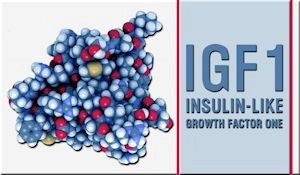
There are so many diets out there, and all of them claim to be based on sound science and nutrition theory.
Unfortunately, most of these diets don't provide everything that a person needs to be healthy or are too difficult to follow for the benefits that they offer.
There are so many people in the United States that are overweight, and looking for a way to enhance and improve their health through the manipulation of their body composition, but many diets end up doing more harm than good in the long run or are just too tricky and unfeasible for all but the most tempered dieters.
Video Link: https://vimeo.com/290606149
Video Download: The Flaws Of Six Popular Diets Part 1
Video Stream: The Flaws Of Six Popular Diets Part 1
Video Link: https://vimeo.com/290606776
Video Download: The Flaws Of Six Popular Diets Part 2
Video Stream: The Flaws Of Six Popular Diets Part 2
The majority of the popular diets have something on the table that provides them with a sense of legitimacy, but often, they go too far with specific themes, or only follow certain aspects of what we know makes a healthy diet, while ignoring other essential parts of proper nutrition.
On top of that, people tend to selectively follow their chosen diet, curbing or completely negating its effectiveness, or leading to issues related to poor nutrition, because they are missing out on certain essential things that the body needs.
Of course, even the most scientifically flawed diet can be useful in many circumstances,  because exercise and caloric restriction are two drastically essential aspects of a proper diet, and a big part of most diets is eliminating foods that are proven to be bad for you, even though the recommendations regarding what to eat don't provide real, scientifically-backed results.
because exercise and caloric restriction are two drastically essential aspects of a proper diet, and a big part of most diets is eliminating foods that are proven to be bad for you, even though the recommendations regarding what to eat don't provide real, scientifically-backed results.
The following are six weight-loss philosophies that are based on some scientific ideas while ultimately giving way to weight loss myth.
What's Wrong with the Low-Fat Diet?
There are three primary categories of energy that we take in through diet: Protein, Carbs, and Fats. We need some of all of these to function at our best.
Many diets suggest significantly restricting the consumption of fats, based on science rooted in the 80s and 90s. Too much fat is indeed awful for you, but following a diet that revolves around not getting enough fat through the menu is a big problem as well.
 During this era, margarine and carbohydrates were considered healthier than fats, and it was believed that saturated fat led to heart issues such as atherosclerosis and blocked arteries.
During this era, margarine and carbohydrates were considered healthier than fats, and it was believed that saturated fat led to heart issues such as atherosclerosis and blocked arteries.
In retrospect, the trans-fats that we were eating during this era were far more dangerous than saturated fats that are still recommended to be consumed in moderation.
Perhaps the biggest problem with Low-Fat Diets (aside from the dangerous abuse of trans-fats during the era in which it was most popular) is that the body has to get energy from somewhere, and if you don't eat enough fat, then its more likely that you will eat more carbs, which our bodies can directly convert into fat.
The field of nutrition today has evolved significantly from this era, but many still erringly turn to Low-Fat Dieting to lose weight and end up putting their health in jeopardy as a direct result.
What's Wrong with the Low-Carb Diet?
As science evolved and the public learned more about the science of losing weight, carbohydrates entered the spotlight as the new Worst Food.
By the turn of the century, the most popular diets were those that recommended severely cutting carbs of all kinds. Carbs were (and still are, to a large extent) the keystone of American food, and there is no doubt that we consume too many carbohydrates.
With these Low-Carb Diets, it was possible to lose weight quickly by limiting the consumption of a variety of carb-loaded foods, including beer, bread, potatoes, and pasta.
Unfortunately, in spite of the Low-Carb diet's ability to encourage weight loss and even rapid weight loss, it is not the body's natural, preferred state, and cutting carbs too strictly often leads successful dieters to gain weight again quickly, sometimes weighing more than before!
Carbohydrates are the body's go-to source for quick energy, and forgoing carbs altogether leads to fatigue and slows metabolism because the body is converting proteins and fats into energy.
The big issue with Carbohydrates is Simple Carbs, like refined sugar, white bread, and white rice. Complex carbohydrates take work to be digested and provide nutrients and a feeling of fullness, whereas simple carbohydrates encourage overeating and spiked blood sugar levels.
About a healthy diet, it is vital to split calories equally from carbohydrates, proteins, and fats, while being smart and sourcing carbohydrates from healthy sources such as vegetables, fruits, yogurt, beans, and whole grains.
What's Wrong with the Paleo Diet?
In recent years, the Paleo or Paleolithic Diet has become incredibly popular across the United States. The theory behind this sort of diet is simple — by eating what our ancestors 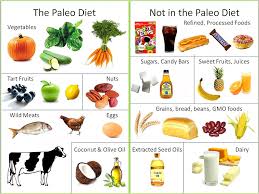 ate and had access to, it's possible to lose weight and maintain a healthier body.
ate and had access to, it's possible to lose weight and maintain a healthier body.
Most people that are on the Paleo Diet eat a lot of fish, chicken, and meat, along with veggies, fruits, and nuts. On the other hand, they forgo processed foods, milk products, beans, and grains.
After reading about the last couple of diets, you can see that there are some things that this diet gets right, especially regarding getting rid of processed foods in one's diet.
On the other hand, there are certain aspects of this diet that aren't grounded in medical science. Most people that aren't lactose intolerant can drink milk without issue, and beans are a perfectly good source of nutrient-dense carbohydrates.
Also, with the way that products like grains and dairy are fortified, there are few useful sources left to get Vitamin D, and calcium can be a struggle as well.
In the end, the big issue with the Paleo Diet isn't that it's an ineffective diet — for the most part, it shares a lot in common with the “ideal diet.”
The problem with it is that it is overly strict and leaves out some perfectly useful and healthy staple foods such as whole grains, beans, and dairy.
What is Wrong with the Gluten-Free Diet?
Another diet that is growing in popularity today is the Gluten-Free Diet. There is a particular form of protein, known as Gluten, which is highly prevalent in grains such as rye, barley, and wheat.
There are a small minority of people that can legitimately benefit from the Gluten-Free Diet — People with Celiac Disease — A condition in which the presence of Gluten in the diet leads to immune system malfunction and significant symptoms which impede health and wellness.
For all other people, there isn't a clinical reason to stop eating foods with gluten in them. Many magazines and websites purport that going Gluten-Free can help people lose weight fast, but there is no reason for this to be so, aside for the fact that it makes people more conscientious about carbohydrates in general, but that has nothing to do with the philosophy behind the diet.
Foods that are advertised as Gluten-Free are actually usually worse for the dieter than if they had gotten the real things, this is because they often have both more calories and more sugar.
People often also go Gluten-Free without doing the proper research and end up missing out on minerals, vitamins, protein, and fiber that they would typically get from the foods they are cutting from their diet because they don't eat more meat, vegetables, and fruit to compensate.
Many people claim that they go Gluten-Free as a result of “Gluten Sensitivity,” which causes issues such as fatigue, headaches, diarrhea, cramps, and gas, but research shows 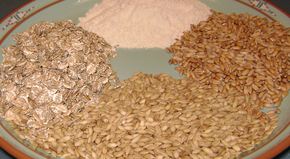 that this isn't true, and the majority of people that have this issue and believe it is related to gluten are mistaken.
that this isn't true, and the majority of people that have this issue and believe it is related to gluten are mistaken.
They actually may just have a sensitivity to a carb group known as FODMAPs, which are present in wheat, but also in a wide variety of foods that they are still eating, including many vegetables, fruits, artificial sweeteners, and dairy products.
If you feel that you have issues with Gluten, don't only turn to a Gluten-Free diet. There are tests that you can take that can reveal your underlying food sensitivities and help you discover what you should avoid, and they can only be performed through a licensed medical professional or dietician.
What is Wrong with the Raw Food Diet?
Another modern diet that has become more prevalent, somewhat related to the Paleo Diet in its theoretical principle, is the Raw Food Diet. In this diet, one completely eschews any food that must be cooked, and only eats foods that can be eaten raw.
Sometimes, the diet is less strict, allowing 1/4th of food eaten to be cooked. The idea with this diet is that the cooking process reduces the caloric benefits of the foods that we eat, and by eating raw foods, we receive an improved nutritional balance from the foods that we eat.
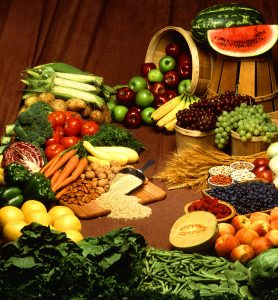 Many people use the Raw-Food Diet as a vegetarian diet, while others will cook meats and eat other foods raw.
Many people use the Raw-Food Diet as a vegetarian diet, while others will cook meats and eat other foods raw.
Some will even eat a variety of raw meats and other animal products, though this obviously leaves a person wide-open for food poisoning and animal-borne illness.
About the rest of the diet, there is some science behind it.
For example, boiling or overcooking foods does degrade the nutritional content of many foods. But it assumes too much in many cases. For instance, tomatoes provide improved nutritional content when cooked.
For that reason, the ideal diet would likely include significant amounts of both cooked and raw foods.
This diet provides all of the nutrients that a person needs, but it is very difficult to follow. It involves preparing meals at home and eschewing dining out almost altogether.
In the end, the benefits of raw vs. cooked are not really worth the time, but it can help people lose weight by being more conscientious and avoiding processed foods.
What is Wrong with the High Fat Diet?
There is a new fad diet on the horizon, based on the user data that we have that Fats aren't as bad for you as once believed, and Carbohydrates are consumed at unhealthy rates 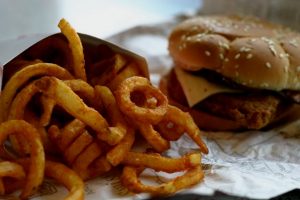 nationwide — The High Fat Diet.
nationwide — The High Fat Diet.
Many dieters are beginning to hear advice that by making fat the staple part of one's diet, it is possible to improve health and lose weight.
Often, these diets claim that you can eat whatever you want, as long as you limit carbs, but this is just not true.
People load up on fat and start packing on pounds, even though they have restricted their carbs. Again, it's essential to focus on the caloric balance among food-classes, while limiting total calories.
Overemphasizing one branch is one of the best ways to introduce nutritional deficiencies or overeating into your diet!
People on High-Fat diets are also more likely to have issues with elevated Triglyceride Levels.
Combining reduced carbs with increased fat consumption can indeed raise HDL (healthy) cholesterol and lower LDL (bad) cholesterol, but overeating fat leads to a surplus of triglycerides, which are even more dangerous than high LDL Levels.
High fat consumption can also lead to unhealthy levels of inflammation that inhibit the health of the body. Finally, if your high-fat diet is combined with elevated glucose levels, this significantly increases the risk associated with atherosclerosis and plaque formation.
References
Nine most popular diets rated by experts 2017
The 5 Most Popular Diets: What's Good, What's Bad?
Contact Us For A Fast And Professional Response

- The Other Aspect of Dieting – Removing Chronic Stressors From Your Life [Last Updated On: February 9th, 2025] [Originally Added On: September 9th, 2020]
- Purchase Sermorelin Acetate Injections Online [Last Updated On: February 8th, 2025] [Originally Added On: September 23rd, 2020]
- Eating Right On a Low-Glycemic Diet [Last Updated On: April 20th, 2025] [Originally Added On: October 1st, 2020]
- The Benefits of Intermittent Fasting [Last Updated On: May 16th, 2025] [Originally Added On: October 2nd, 2020]
- Eat Healthier with White Flour Alternatives [Last Updated On: August 26th, 2025] [Originally Added On: October 3rd, 2020]
- Ten Common Contributors to Obesity that Make it Hard to Lose Weight [Last Updated On: March 5th, 2025] [Originally Added On: October 4th, 2020]
- How Can Sermorelin Enhance Your Life? Losing Weight and Battling Premature Aging With Sermorelin [Last Updated On: April 1st, 2025] [Originally Added On: October 5th, 2020]
- Benefits and Risks of HGH Therapy: 2018 Update [Last Updated On: April 15th, 2025] [Originally Added On: October 6th, 2020]
- Have You Heard About the 21st Century Breakthroughs in Hormone Replacement Therapy? [Last Updated On: September 16th, 2025] [Originally Added On: October 7th, 2020]
- The Importance of Omega-3 Fatty Acids [Last Updated On: June 4th, 2025] [Originally Added On: October 8th, 2020]
- The Relationship Among Testosterone, Obesity, and Alzheimer's Disease [Last Updated On: August 25th, 2025] [Originally Added On: October 9th, 2020]
- Major Alzheimer's Risk To Continued Sleep Deprivation [Last Updated On: April 29th, 2025] [Originally Added On: October 10th, 2020]
- Should You Choose the Ketogenic Diet? [Last Updated On: May 7th, 2025] [Originally Added On: October 13th, 2020]
- HGH and Insulin: The Primary Agents of Energy Bio-Availability [Last Updated On: March 24th, 2025] [Originally Added On: October 14th, 2020]
- How Can Women Maximize HGH Production? [Last Updated On: April 5th, 2025] [Originally Added On: October 18th, 2020]
- Micro Nutrients Versus Macro Nutrients [Last Updated On: January 11th, 2025] [Originally Added On: November 4th, 2020]
- Some of the most effective Weight Loss Injection and Diet Injection Programs [Last Updated On: June 10th, 2025] [Originally Added On: November 6th, 2020]
- Information About Chelation Therapy [Last Updated On: April 9th, 2025] [Originally Added On: November 9th, 2020]
- Seven Ways to Help You Burn Calories Faster and More Effectively [Last Updated On: March 28th, 2025] [Originally Added On: January 21st, 2021]
- Don’t Eat These Foods When Taking Sermorelin Acetate for HGH Deficiency [Last Updated On: February 14th, 2025] [Originally Added On: February 3rd, 2021]
- Understanding Aerobic vs. Anaerobic Exercise [Last Updated On: May 13th, 2025] [Originally Added On: March 4th, 2021]
- Physician’s Fact Sheet: Vitamin E [Last Updated On: January 10th, 2025] [Originally Added On: March 8th, 2021]
- Naturally Losing Weight with Lifestyle Changes Keeps the Weight Off for Good [Last Updated On: May 4th, 2025] [Originally Added On: March 27th, 2021]
- The Health Benefits of the Amazing Strawberry [Last Updated On: February 9th, 2025] [Originally Added On: May 8th, 2021]
- Need Better Sleep? Try Eating Pistachios Before Bed! [Last Updated On: January 21st, 2025] [Originally Added On: February 16th, 2022]
- Three Kinds of Body Fat and How They Impact Your Health [Last Updated On: August 12th, 2025] [Originally Added On: April 12th, 2022]
- Pistachios: You’re Not Nuts [Last Updated On: January 4th, 2025] [Originally Added On: August 3rd, 2022]
- 7 Surprising Things That Mess With Your Hormones [Last Updated On: February 26th, 2025] [Originally Added On: September 5th, 2022]
- Adding Cranberries to Your Diet can Really Add Zest – and Health – to Your Life. [Last Updated On: September 27th, 2025] [Originally Added On: January 10th, 2023]
- Raspberries – Delicious Portal to Shining Good Health [Last Updated On: October 1st, 2025] [Originally Added On: January 18th, 2023]
- Study Shows Cialis and Viagra Users have 25% Lower Early Death Rates [Last Updated On: March 14th, 2025] [Originally Added On: February 19th, 2023]
- Introduction: Understanding the Multifaceted Nature of Obesity [Last Updated On: March 2nd, 2025] [Originally Added On: March 2nd, 2025]












